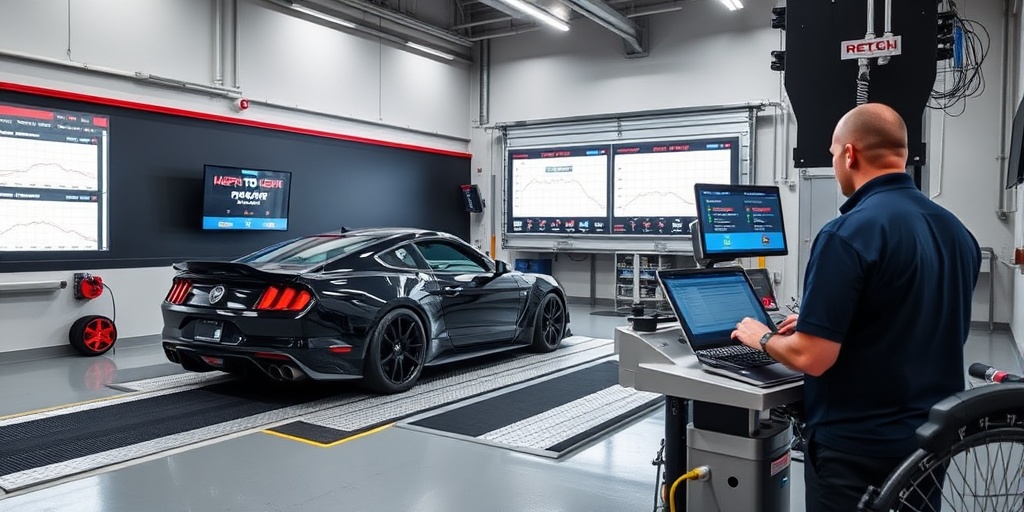
Complete Guide to Dyno Testing: What to Expect and How to Prepare
Everything you need to know about dyno testing your vehicle, from preparation tips to understanding your results and making the most of your investment.
Dyno testing is the gold standard for measuring vehicle performance. Whether you're establishing a baseline before modifications, tuning your engine, or simply satisfying your curiosity about your car's power output, understanding the dyno process helps you get the most accurate and useful results.
Types of Dynamometers
Not all dynos are created equal. Understanding the differences helps you choose the right facility and interpret your results correctly.
Chassis Dynamometer
Measures: Wheel horsepower (WHP)
Cost: $100-200 per session
Tests the complete vehicle, including drivetrain losses. More convenient but slightly less precise than engine dynos.
Engine Dynamometer
Measures: Crank horsepower (CHP)
Cost: $200-400 per session
Tests the engine directly, providing the most accurate measurements but requires engine removal.
Preparing for Your Dyno Session
Proper preparation ensures accurate, repeatable results:
- Vehicle Condition: Ensure your car is in good mechanical condition
- Fuel Quality: Use high-octane fuel and fill the tank
- Tire Pressure: Check and adjust to manufacturer specifications
- Engine Temperature: Allow proper warm-up time
- Weight: Remove unnecessary items for consistent results
- Timing: Avoid testing in extreme weather conditions
Safety First
Dyno testing puts significant stress on your vehicle. Ensure your car is mechanically sound, especially cooling system, suspension components, and drivetrain. Some shops may require a pre-test inspection.
Understanding Your Results
Dyno results provide more than just peak numbers. The horsepower and torque curves reveal how your engine delivers power throughout its operating range, which is crucial for understanding real-world performance.
Peak Numbers
Maximum horsepower and torque values, but not necessarily the most important metrics for performance.
Area Under the Curve
Total power delivery across the RPM range - more important for real-world acceleration than peak numbers.
Power Band Characteristics
Where your engine makes its power and how it delivers it - crucial for transmission gearing and driving style.
Factors Affecting Dyno Results
Several variables can impact your dyno numbers:
- Atmospheric Conditions: Temperature, humidity, and barometric pressure
- Dyno Type and Calibration: Different dynos can show different numbers
- Correction Factors: SAE, STD, and uncorrected measurements
- Operator Technique: How the test is conducted affects results
- Vehicle Setup: Tire pressure, alignment, and loading
Compare Dyno vs Calculator Results
Use our calculator to estimate your vehicle's power before dyno testing and compare the results to validate both methods.
Calculate Estimated HP NowMaking the Most of Your Investment
Maximize the value of your dyno session:
- Multiple Runs: Do at least 3 runs for consistency
- Documentation: Record all conditions and modifications
- Video Recording: Capture the runs for future reference
- Data Analysis: Study the curves, not just peak numbers
- Future Comparisons: Establish a baseline for future modifications
Cost vs Value Analysis
Dyno testing costs $100-400 per session, but provides invaluable data for tuning, modification planning, and performance verification. The investment pays off by preventing costly mistakes and optimizing your vehicle's setup.
When to Dyno Test
Consider dyno testing when establishing baselines before modifications, after major changes, during tuning sessions, or when troubleshooting performance issues. Regular testing helps track your vehicle's condition and performance over time.
Estimate Before You Test
Get an idea of your vehicle's performance before heading to the dyno
Calculate Performance Now